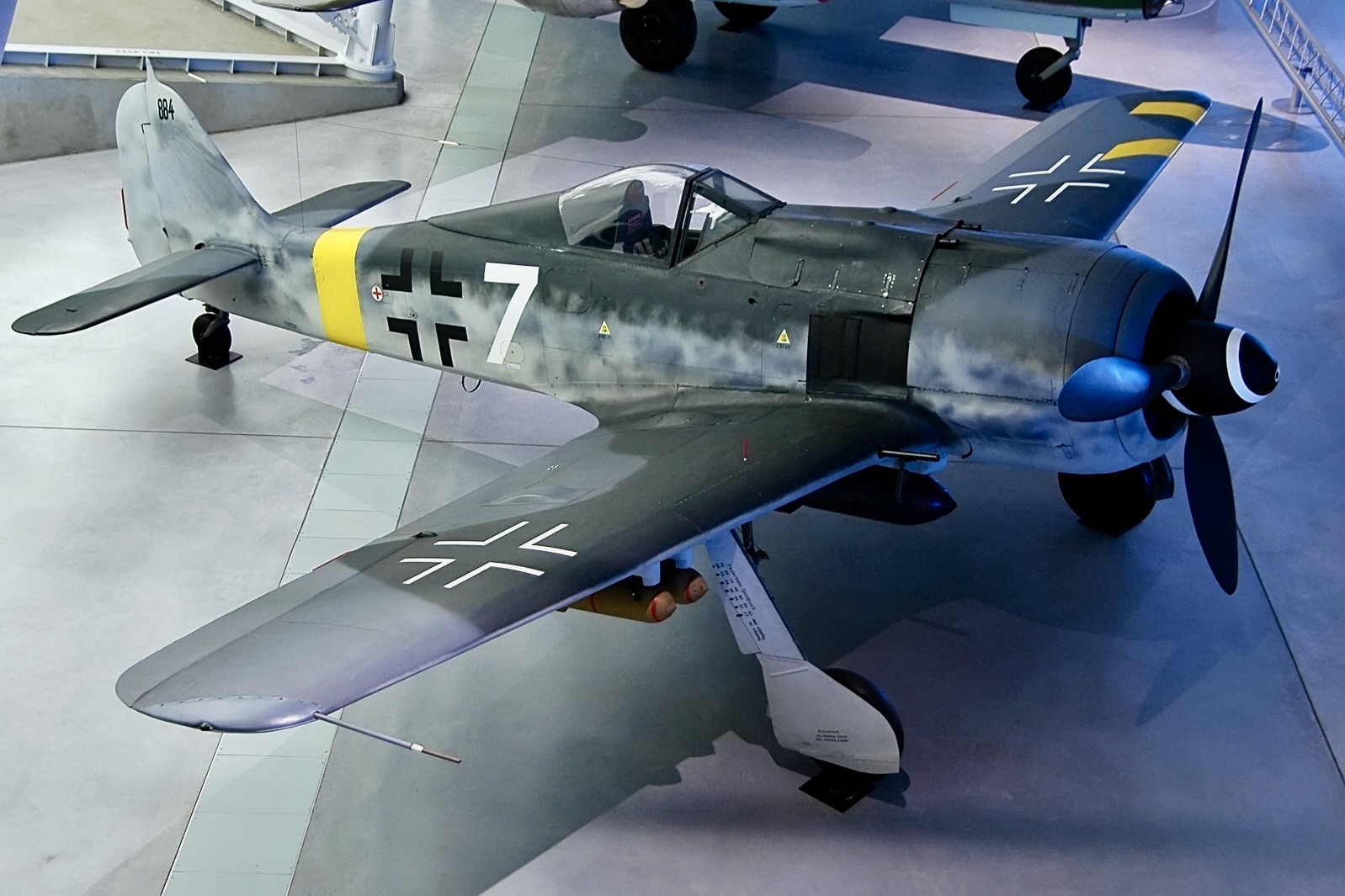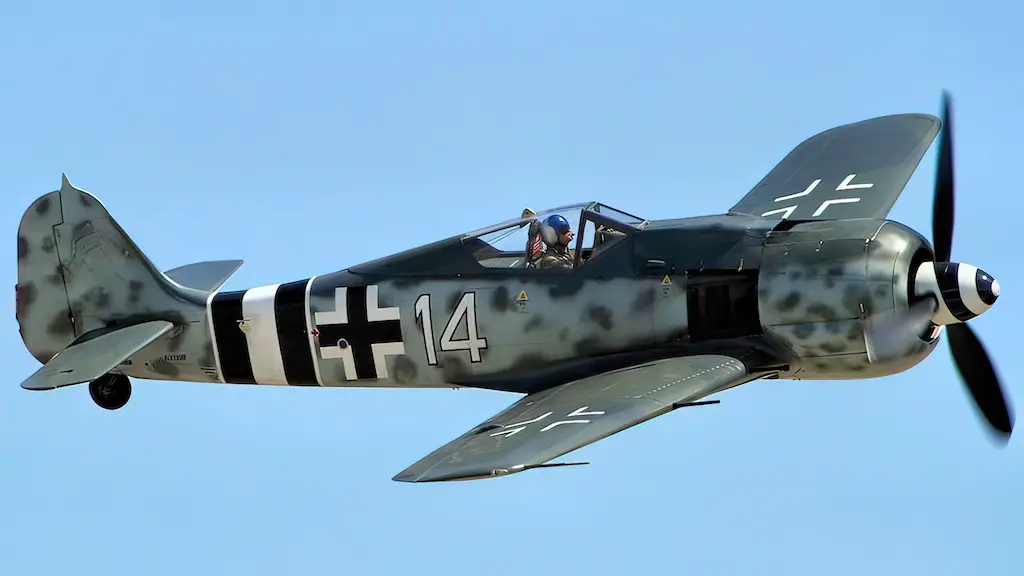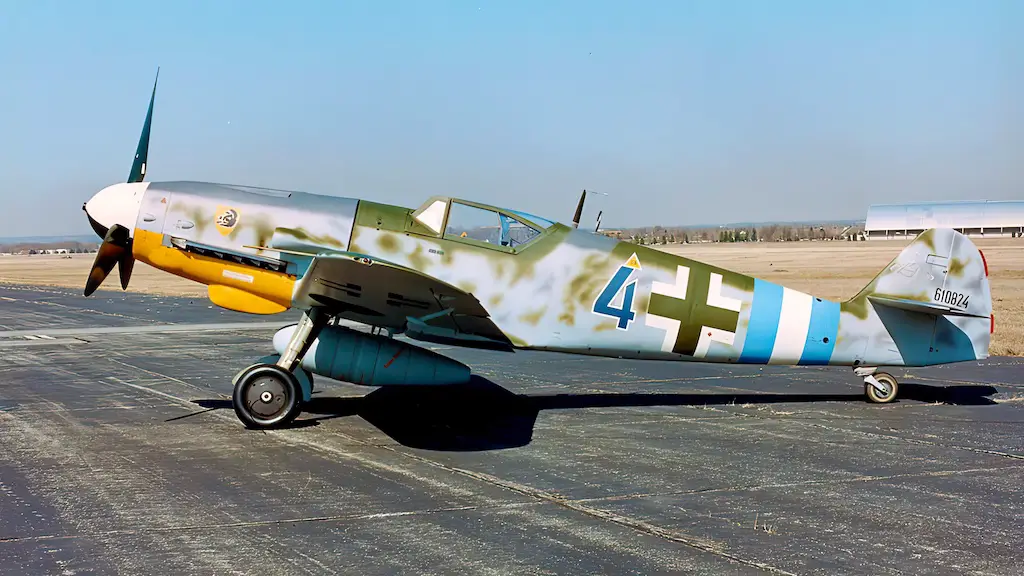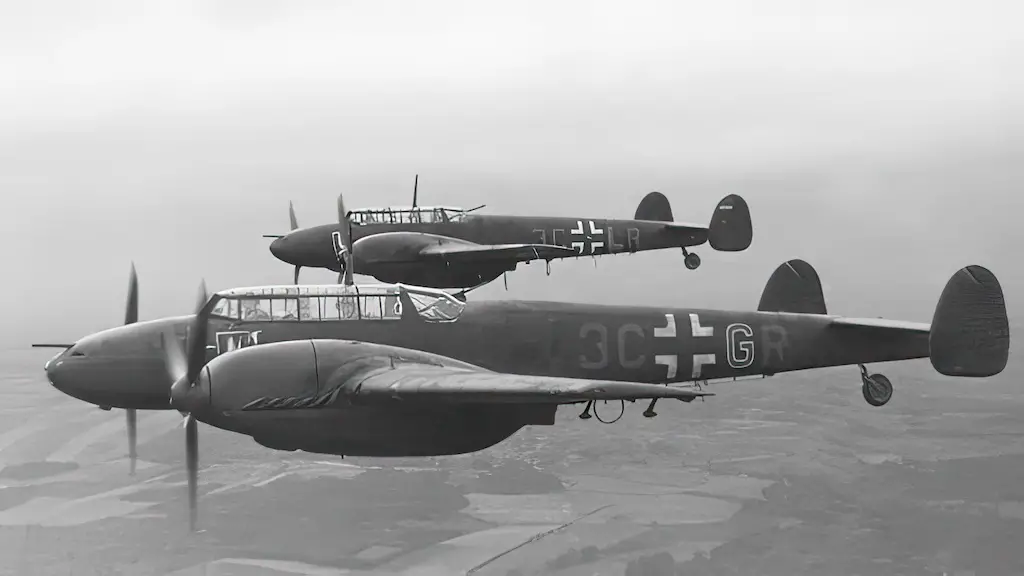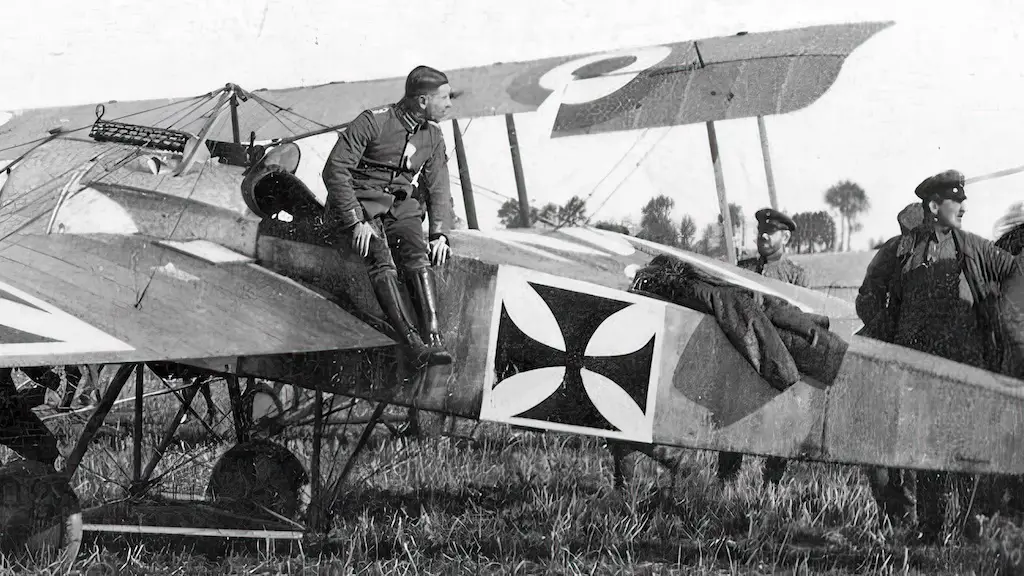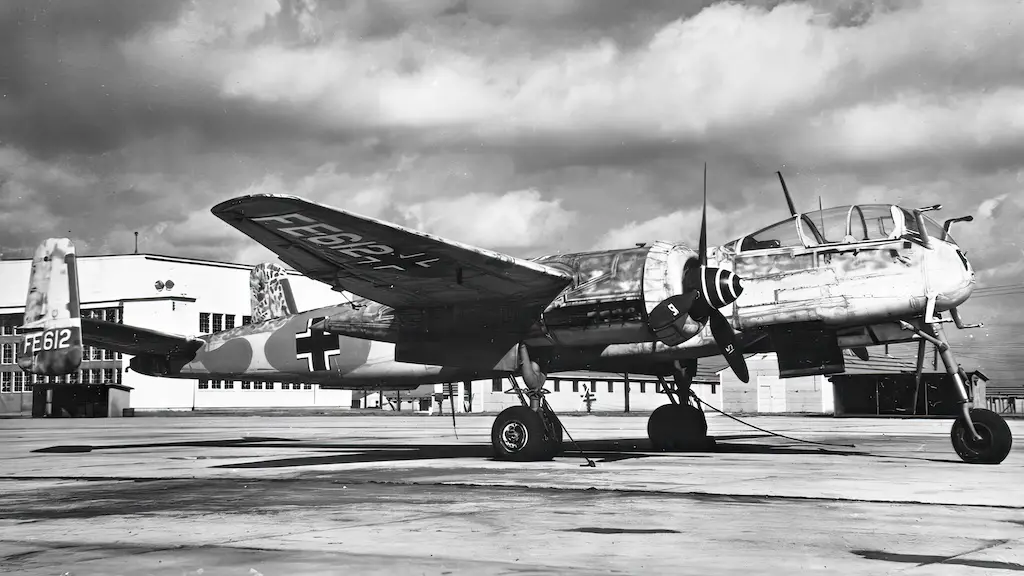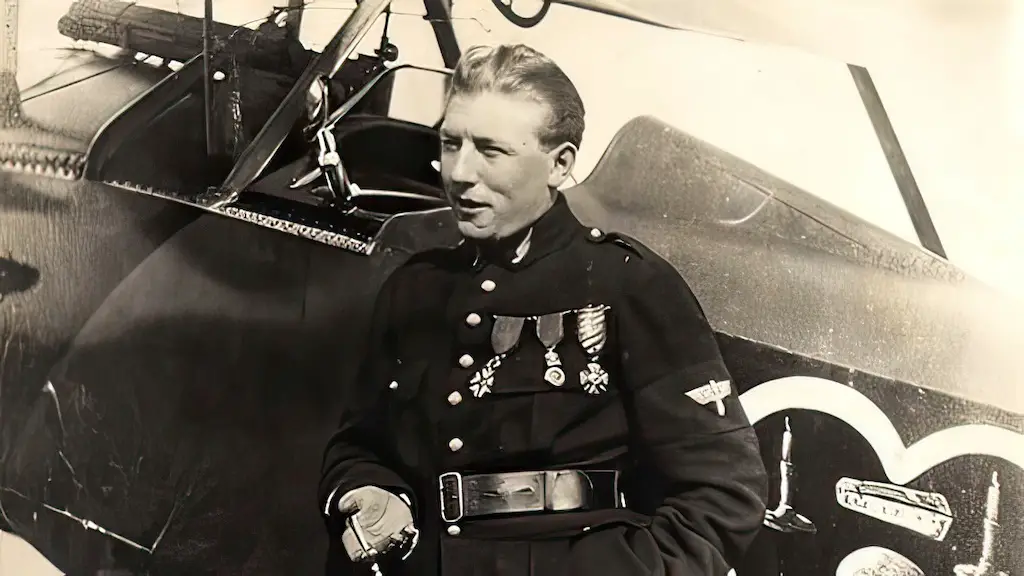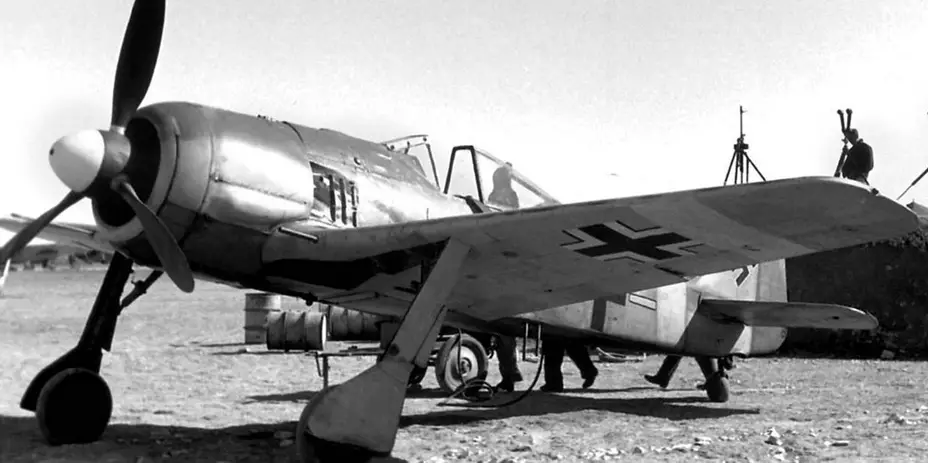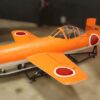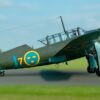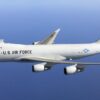The Focke-Wulf Fw 190 stands as a legendary symbol of German aviation during World War II. Developed by the Focke-Wulf Flugzeugbau AG, this single-seat fighter aircraft played a crucial role in the German Luftwaffe’s arsenal. Renowned for its exceptional performance and versatility, the Fw 190 proved to be a formidable adversary for the Allied forces throughout the war. In this article, we will delve into the design, capabilities, and historical significance of the Focke-Wulf Fw 190.
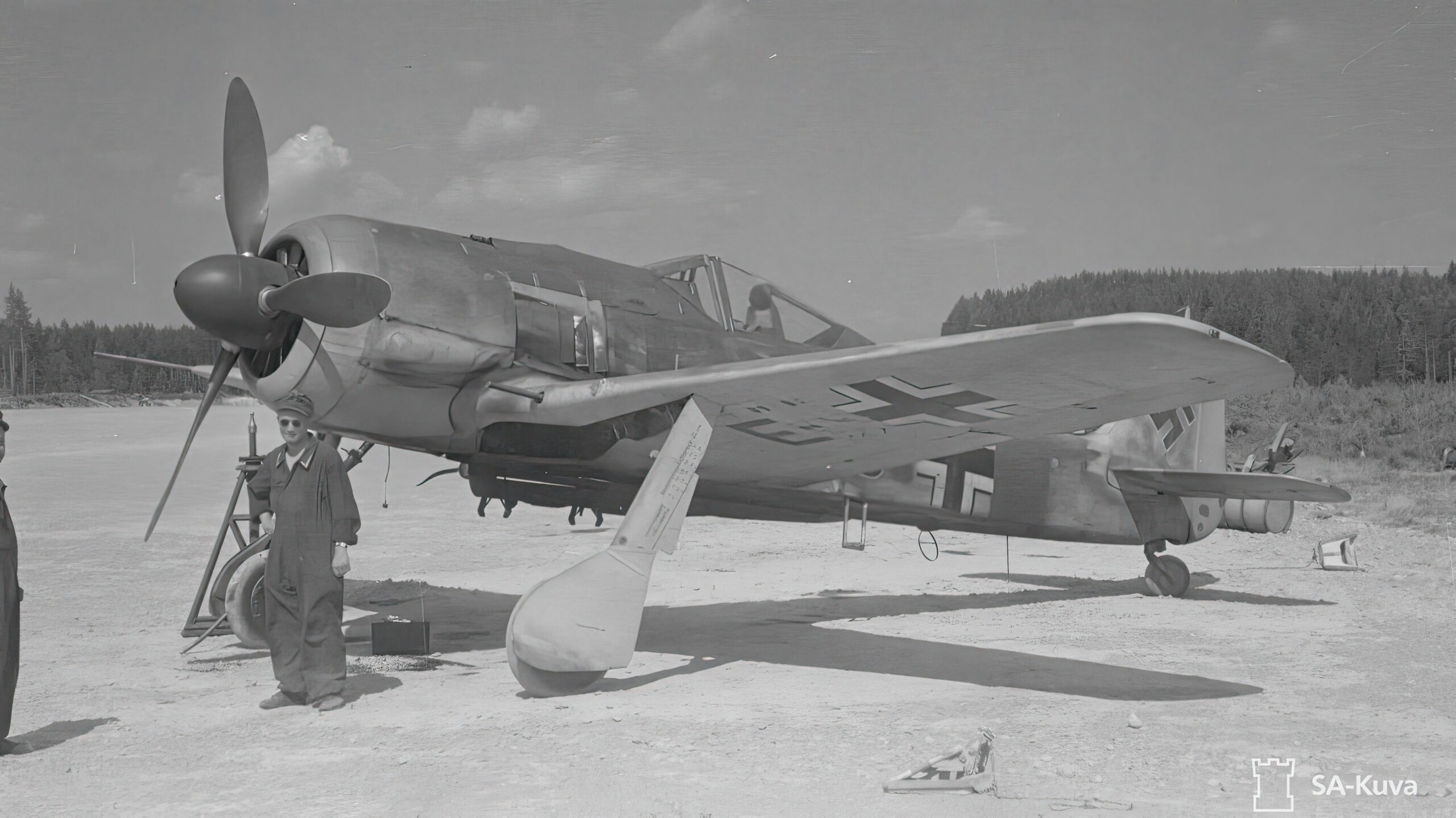
Robust design
The Fw 190 possessed a distinctive and robust design, boasting a radial engine and a low-mounted wing. Its innovative construction incorporated a steel-tube fuselage covered with aluminum panels, providing a perfect balance of strength and lightweight design. The aircraft featured a spacious cockpit, offering excellent visibility for the pilot. Additionally, its advanced engineering allowed for a high degree of maneuverability, making it a formidable opponent in dogfights.
Impressive performance
Equipped with a powerful BMW 801 radial engine, the Fw 190 achieved impressive speed and climbing capabilities. Its top speed reached approximately 410 miles per hour while its climb rate exceeded 3,300 feet per minute. The aircraft also had a remarkable range, allowing it to undertake long-range missions and effectively engage enemy aircraft.
The Fw 190’s armament varied across different models, but typically consisted of four 20mm cannons and two machine guns. This formidable array of firepower gave the Fw 190 a significant advantage in combat situations. Moreover, its ability to carry a range of external ordnance, including bombs and rockets, expanded its role beyond aerial superiority, enabling it to engage ground targets effectively.
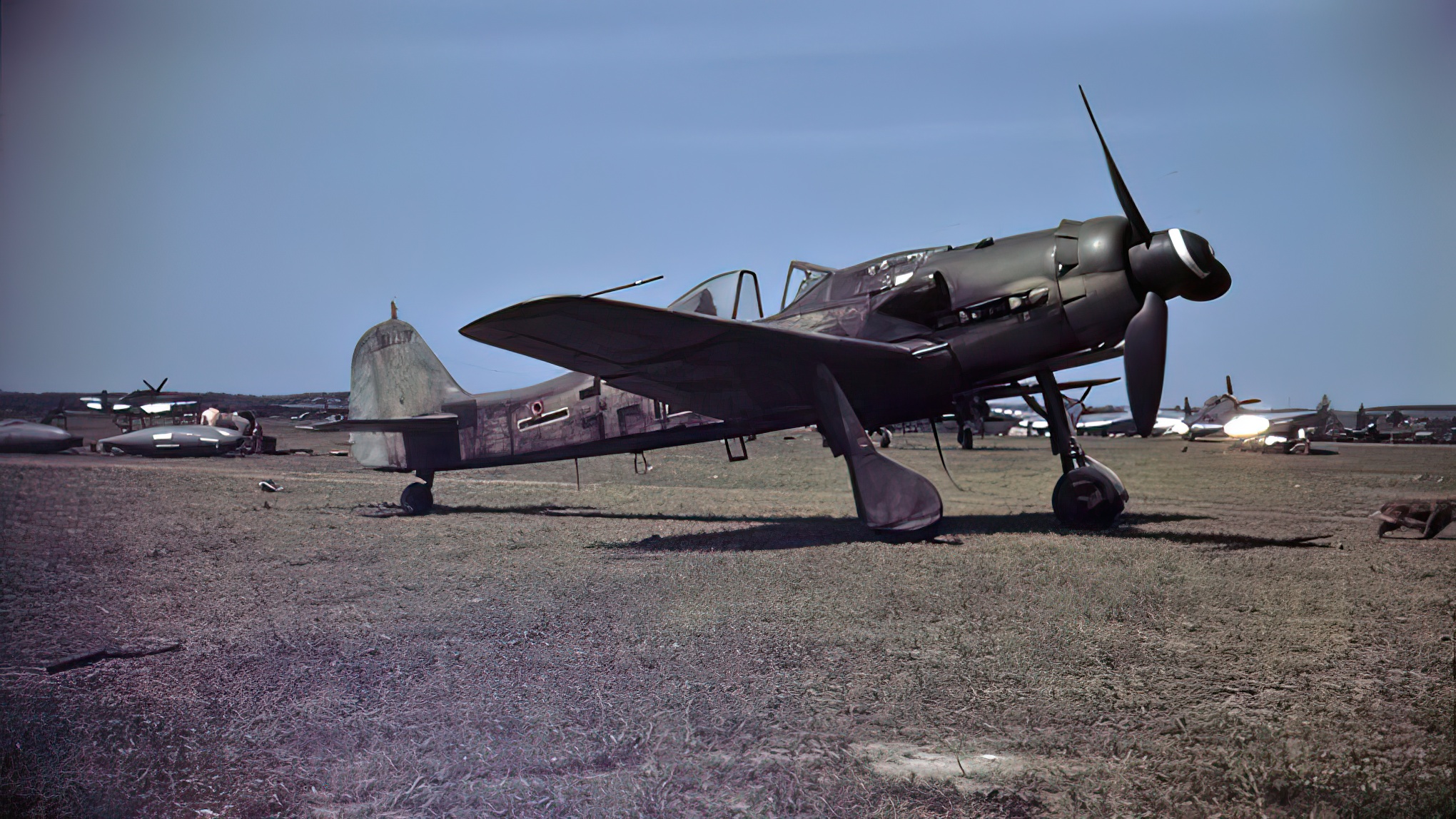
Reputation
The Focke-Wulf Fw 190 made its combat debut in 1941 and quickly gained a reputation as one of the most formidable fighter aircraft of World War II. It played a crucial role in various fronts, including the Eastern and Western fronts, North Africa, and the defense of the Reich. Pilots appreciated its robustness, ease of handling, and its ability to outperform its contemporaries.
The Fw 190’s impact on the war was significant. It posed a formidable challenge for Allied air forces and influenced the development of their own aircraft. The reputation and effectiveness of the Fw 190 contributed to the continuous improvement of Allied fighter planes to counter its threat. Even late in the war, as the Allied forces gained superiority, the Fw 190 remained a potent adversary.
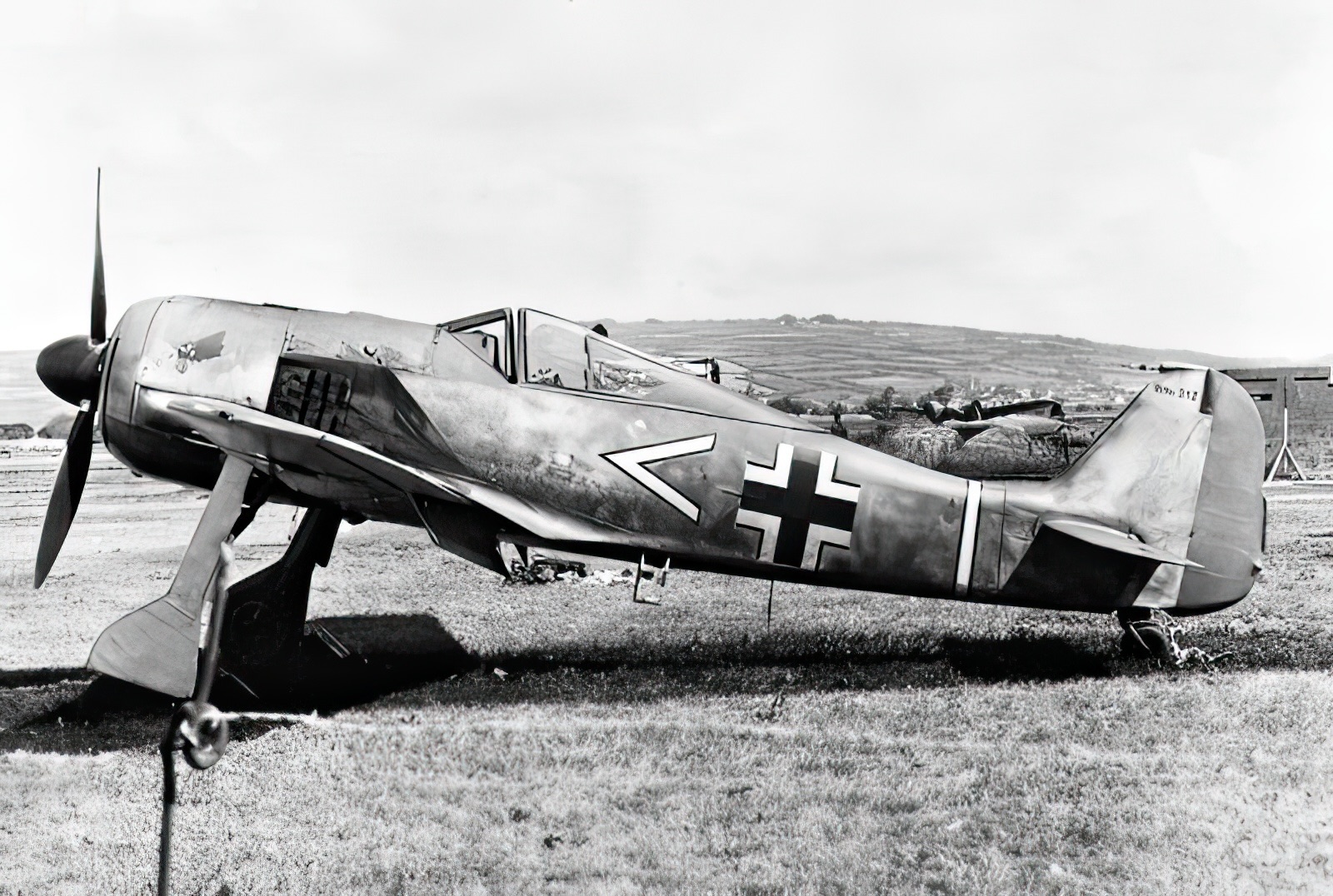
Outstanding performance
The Focke-Wulf Fw 190 rightfully earned its place among the most iconic aircraft of World War II. Its innovative design, outstanding performance, and adaptability allowed it to dominate the skies and strike fear into the hearts of its adversaries. The aircraft’s impact extended beyond the battlefield, influencing future aviation designs. Today, the Fw 190 remains a testament to the remarkable engineering achievements of the German aviation industry during one of the most significant conflicts in history.
